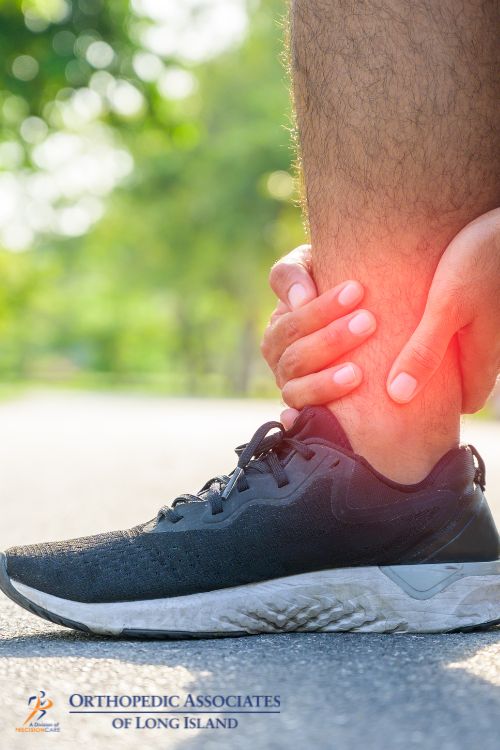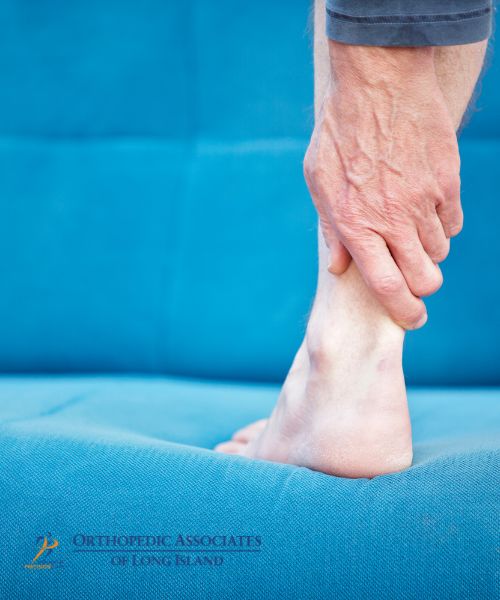Identifying Ankle Achilles Tendonitis Unique Healing Paths For Tendon Injuries
Chronic discomfort around the ankle area may signal a problem with the Achilles tendon, which is a common concern for athletes and active individuals. This painful condition often develops from irritation or inflammation of the tendon itself.
The Achilles tendon plays a significant role in facilitating movement, particularly during activities such as walking and running.
Common Symptoms of Ankle Achilles Tendonitis
Pain and tenderness often occur around the heel and ankle, especially during physical activity.
Swelling and stiffness are frequently experienced after exertion, which can hinder mobility for many individuals.
Risk Factors Associated with Achilles Tendonitis
Age and overall activity level greatly impact the risk of developing tendon injuries.
Individuals with a history of previous injuries or those participating in high-impact sports may face a higher likelihood of developing Achilles tendinitis.
Unique Healing Paths
Patients experiencing discomfort have various treatment options available. Non-operative methods, including physical therapy, often provide relief for those affected.
Cutting-edge techniques, such as regenerative medicine, are also gaining traction for enhancing healing processes in the tendon.
When to Seek Professional Help?
Recognizing severe symptoms—like persistent pain or significant swelling—is crucial for timely intervention. Consulting an orthopedic specialist, such as the experienced team at OALI, helps patients identify the most suitable care options for their tendon injuries.


Understanding Achilles Tendinopathy
The Achilles tendon serves a pivotal role in connecting the calf muscles to the heel bone. This critical structure can be subject to various stressors leading to discomfort and stiffness.
Athletes frequently experience challenges as a result of repetitive stress and sudden spikes in activity levels.
Inflammation may result from overuse, particularly when physical exertion increases unexpectedly.
Biomechanical factors, including the presence of flat feet, can heighten the likelihood of complications. Additionally, aging is a significant risk factor, as older individuals may experience decreased blood flow to the tendon tissue.
Proper shoe selection is essential to minimize risks, emphasizing the importance of supportive footwear tailored for specific activities. Exercise routines focusing on calf muscle stretching and strengthening can effectively lower the chances of injury.
Research indicates a distinction between mid-portion and insertional complications affecting the tendon.
Unique treatment approaches address each type effectively.
Studies demonstrate that eccentric exercises can play a crucial role in recovery, enhancing overall patient health and promoting better outcomes.
Common Signs Of Tendon Injuries
Tendon injuries can exhibit a range of symptoms, influencing both diagnosis and treatment approaches. Recognizing these indicators can significantly enhance recovery processes.
Acute symptoms, for instance, often present as sharp pain during physical activity, emerging suddenly.
Swelling surrounding the injured region frequently indicates inflammation, while bruising may appear after an injury related to the achilles tendon.
- Chronic symptoms differ, characterized by persistent discomfort that tends to worsen with physical activity and improves during periods of rest, highlighting the influence of repetitive strain injury.
- Stiffness, particularly noted in the morning or following inactivity, can significantly limit flexibility in daily movements.
- A decreased range of motion may affect daily activities, impacting overall quality of life.
Establishing a clear distinction between these symptoms is important. Acute injuries typically require prompt medical intervention, whereas chronic symptoms may indicate the need for ongoing management strategies. If symptoms persist beyond a few days or escalate, seeking guidance from healthcare professionals is advisable.
Did you know untreated tendon injuries can lead to degenerative changes? Early identification of these signs is crucial for recovery from conditions such as Achilles tendinitis. This emphasizes the importance of physical examination and timely intervention, which are integral in sports medicine to enable patients to regain mobility.
- Acute tendon injuries can cause immediate sharp pain and require urgent medical attention.
- Chronic tendon injuries often result from repetitive strain and may improve with rest.
- Stiffness and reduced range of motion can significantly affect daily activities and quality of life.
- Early diagnosis and treatment of tendon injuries can prevent degenerative changes and promote better recovery outcomes.
Effective Rehabilitation Options For Achilles Tendonitis
Effective rehabilitation is fundamental for recovery from orthopedic conditions. OALI employs a comprehensive technique to enhance mobility while alleviating pain using multiple methods.
Key rehabilitation focuses on strengthening the ankle and minimizing tendon injuries.
Flexibility exercises significantly contribute to overall recovery.
Innovative home exercise routines can effectively elevate rehabilitation success rates.
Exercises for Rehabilitation:
- Calf RaisesSpecifically target the Achilles tendon, which improves strength.
- Stretching RoutinesEnhance flexibility in the foot and ankle region.
- Strengthening the Calf MuscleAssists in preventing future injuries.
Manual therapy techniques also prove beneficial in recovery. Mobilization and manipulation can provide significant relief from the pain associated with tendonitis. The benefits of manual therapy extend to various tendon injuries, facilitating long-term recovery and improved mobility.
- Manual Therapy Options:
- Manual therapy utilizes hands-on techniques to alleviate pain effectively.
- Methods include soft tissue mobilization and targeted joint manipulation.
- Manual therapy effectively addresses symptoms of Achilles tendinopathy.
Modalities such as ultrasound and electrical stimulation play a role in recovery. These modalities not only support the healing processes but also aid in managing pain associated with injuries. Recent studies have shown their effectiveness in treating various tendon injuries, including those around the heel.
- Role of Modalities in Recovery:
- Ultrasound treatments promote blood flow to injured areas and expedite healing.
- Electrical stimulation aids in muscle re-education and overall recovery.
- Both modalities are crucial for alleviating heel pain and enhancing mobility.
Combining exercises, manual therapy, and effective modalities results in a comprehensive care plan. OALI’s multi-specialty team collaborates to develop personalized treatment strategies to meet each patient’s unique orthopedic needs, ultimately fostering effective recovery.
Schedule Your Consultation Today
Did you experience a sports injury? Don’t delay in seeking relief. Reach out to us now to book a consultation with our expert team. We’re here to help you restore your strength and embrace a healthier, more active life.